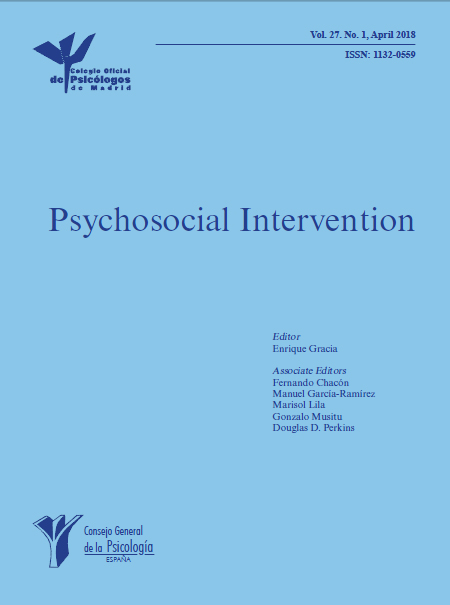
El Cambio de Actitudes hacia Uno Mismo en el Contexto Organizacional: El Efecto del Formato de Pensamiento
[Attitude Change Toward the Self in the Organizational Context: The Effect of Thought Format]
Gandarillas, Beatriz Briñol, Pablo
https://doi.org/10.5093/tr2010v26n1a2
Resumen
La visiĂłn que tienen las personas de sĂ mismas influye sobre distintos comportamientos organizacionales. Por tanto, resulta esencial entender cĂłmo se pueden modificar las actitudes hacia uno mismo tanto en el contexto personal como el organizacional. El cambio de actitudes depende fundamentalmente de la direcciĂłn (favorable o desfavorable) de los pensamientos con respecto a uno mismo. En el presente trabajo se propone estudiar, además de la direcciĂłn, tambiĂ©n el formato de dichos pensamientos. Se llevaron a cabo dos experimentos en los que se pidiĂł a los participantes que pensaran sobre sus fortalezas o debilidades (manipulaciĂłn de la direcciĂłn del pensamiento) de forma continua o dicotĂłmica (manipulaciĂłn del formato). Los resultados indican que la direcciĂłn de los pensamientos influyĂł de forma directa o inversa sobre la auto-estima segĂşn el formato. Se ofrecen distintas interpretaciones de estos resultados destacando la posibilidad de que el pensamiento dicotĂłmico resultara difĂcil en este contexto de alta relevancia. Finalmente, se sugieren implicaciones potenciales de los resultados para el comportamiento organizacional.
Abstract
Self-views can influence organizational behavior. Thus, it is important to understand how attitudes toward the self change not only in the personal domain, but also in organizational settings. Self-esteem varies as a function of the direction (favorable or unfavorable) of the thoughts people have toward themselves. The present research examines the impact of the format of these thoughts. Two experiments were conducted in which participants had to think about their strengths or weakness (thought-direction induction) in a continuum or dichotomous format (format manipulation). As expected, participants´ selfesteem was affected directly by the direction of the thoughts (assimilation effect) in the continuum condition, whereas there was a contrast effect (i.e., better self-esteem after thinking in negative rather than positive self-relevant thoughts) for the dichotomous condition. Different interpretations for these findings are offered, highlighting the possibility that dichotomous thinking was difficult in this context of personal relevance. Practical implications for organizational behavior are also discussed.
Palabras clave
actitudes#cambio de actitudes#persuasiĂłn#auto-estima#facilidadCopyright © 2026. Colegio Oficial de la Psicología de Madrid








 CrossRef
CrossRef






